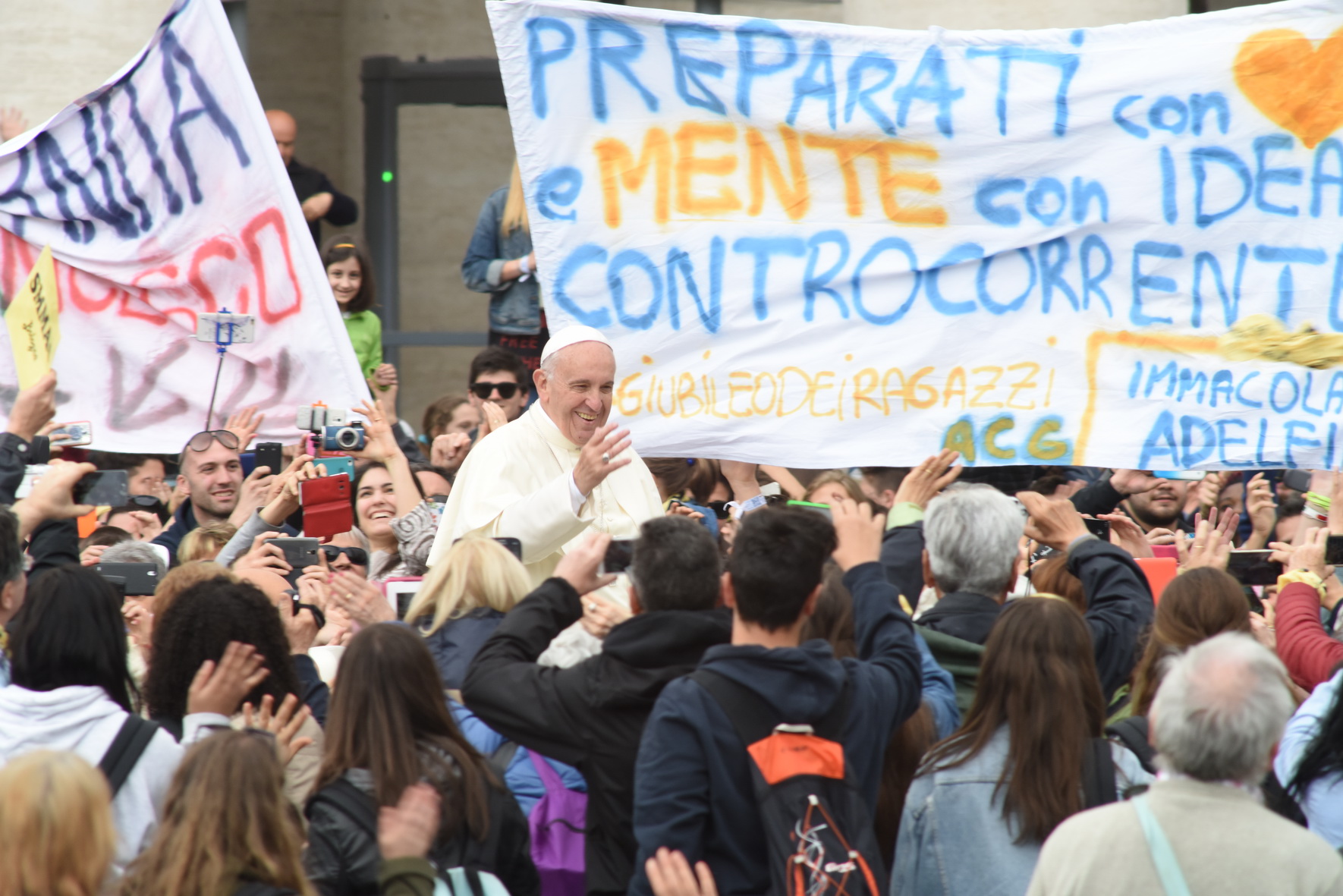Jubilee
Yet again, Francis has been a great protagonist of the event, and not because he focused attention on himself. In fact, for precisely the opposite reason: the Pope relentlessly embraced the youths. I am certain that this experience has changed them. I hope their educators that accompanied them also brought with them the belief that, if we wish, we will meet these youths again in the future

It will take some time to understand what has happened in Rome throughout the Jubilee of Young People. Like all great things. In fact, the experience had been carefully conceived and planned, but as often happens when the young generations are involved, surprises are part of the final picture.
There were only few days available, and certainly these days were not those of the WYD, held in the summer, distant from school commitments and deadlines. This time the youths interrupted their daily commitments and took advantage of the only three-day weekend of 2016, thereby living the three-day events in full.
The intention was to ensure the involvement of young boys and girls in a multifarious program, characterised by a set of events. The Jubilee of Young Boys and Girls has in fact been an educational project that started with preparatory meetings at home.
In Rome it was important for them to experience the Jubilee of ancient gestures, made of prayer, confession, and the passage through the Holy Door,
accompanied by moments for reflection with the catecheses on the works of mercy: seven tents were set up in seven squares not only to learn Rome’s history, along with its artistic and architectural beauties, but to experience the account of the city’s works of charity. The celebration (an extremely important dimension in the life of the youths) was divided into two parts. The first, Saturday evening, was dedicated to global voices, the voices of others that young people listen to on a daily basis and whom they yearn to meet. The second part, (Sunday morning), was the Mass celebrated by Pope Francis.
Yet again, the Pope has been a major protagonist of all events, and not because he focused attention on himself. In fact, for precisely the opposite reason: he relentlessly embraced the youths.
By now, everyone’s eyes still reflect the scene of the Pope confessing them in St. Peter’s Square, along with the extraordinary message delivered at the Olympic Stadium. Not to mention the homily of Sunday morning Mass.
This Jubilee has indeed given much food for thought for the educators.
This is the innovative element we should seize: a Pope who listens and gives advice, who invites to take part in the celebration without demonizing the world or contemporary culture, who invites young people not to be afraid to fall and to “stand upright, with heads held high.”
When the Pope pronounced these words on Sunday, April 24, at the end of the Mass, the youths applauded warmly, and everyone was overcome by emotion. But as for myself, and the other educators with me, I felt I had been called into question. I don’t know whether we are truly capable of letting ourselves be involved by these youths as Pope Francis did. I don’t know whether we are truly capable of letting the thoughts and words of these young people turn into means to change people’s hearts, to have faith in life and in other people, into the creativity of finding the patience and the language to proclaim over and over the good of the Gospel.
I’m sure that these young boys and girls returned home as different persons. I hope their educators that accompanied them also brought with them the belief that, if we want, we will meet these youths again in the future.